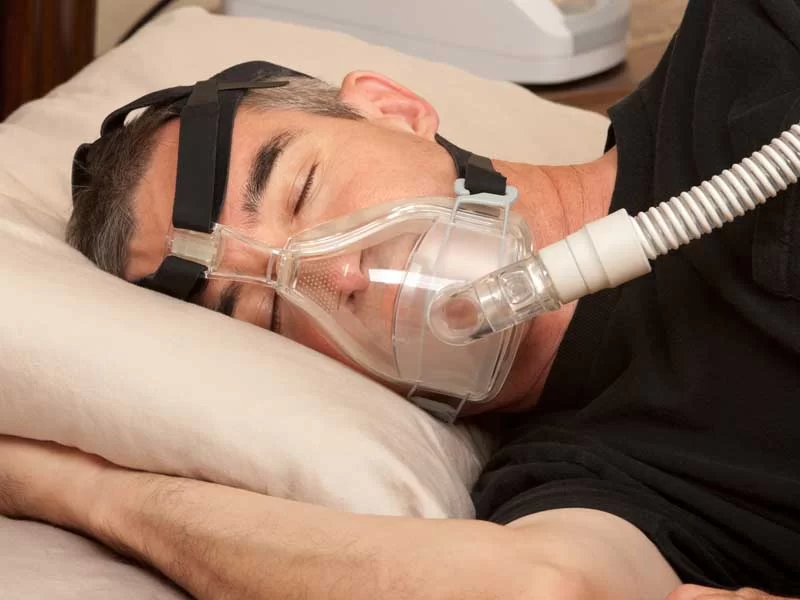
Can a Mouth Guard Cure Sleep Apnea?
Sleep apnea is a serious sleep disorder where breathing repeatedly stops and starts during sleep. One of the most common types of sleep apnea is obstructive sleep apnea (OSA), which occurs when the throat muscles relax and block the airway during sleep. This condition can lead to poor sleep quality, daytime fatigue, and even more severe health problems if left untreated. For many people, using a mouth guard, also known as a mandibular advancement device (MAD), has been a recommended treatment. But, can a mouth guard truly cure sleep apnea, or is it just a temporary solution?
In this article, we will explore how mouth guards work to treat sleep apnea, their effectiveness, and what other treatment options are available. We’ll also dive into real-world stories and examples from people who have used mouth guards to manage their sleep apnea, offering insights into their experiences. For more information on sleep apnea and oral health treatments, visit Dentistry Toothtruth.
- 1. How Mouth Guards Work for Sleep Apnea
- 2. Effectiveness of Mouth Guards in Treating Sleep Apnea
- 3. Types of Mouth Guards Available for Sleep Apnea
- 4. Other Treatment Options for Sleep Apnea
- 5. Patient Experiences with Mouth Guards
- 6. When to Seek Professional Help for Sleep Apnea
1. How Mouth Guards Work for Sleep Apnea
Mandibular advancement devices (MADs), commonly referred to as mouth guards, are designed to treat obstructive sleep apnea by repositioning the lower jaw and tongue. The device gently pushes the lower jaw forward, which helps to keep the airway open during sleep. By preventing the collapse of the throat muscles, the mouth guard reduces the frequency and severity of sleep apnea events.
For many people with mild to moderate obstructive sleep apnea, this simple device offers an effective, non-invasive treatment option. While mouth guards can’t cure sleep apnea, they can significantly reduce symptoms and improve sleep quality. This makes them an excellent option for those seeking a less intrusive alternative to more invasive treatments like CPAP (Continuous Positive Airway Pressure) therapy.
2. Effectiveness of Mouth Guards in Treating Sleep Apnea
Studies have shown that mouth guards can be highly effective for individuals with mild to moderate obstructive sleep apnea. In fact, some studies suggest that MADs reduce the frequency of apneas (breathing interruptions) by up to 50%. Many people report better sleep quality, less snoring, and improved daytime energy levels after using these devices.
However, the effectiveness of a mouth guard largely depends on the severity of the condition. While MADs are helpful for some, they may not be enough for people with severe sleep apnea. In such cases, additional treatments may be necessary. Consulting with a sleep specialist is essential for determining whether a mouth guard is appropriate for your situation.
3. Types of Mouth Guards Available for Sleep Apnea
There are different types of mouth guards available for treating sleep apnea, each with varying levels of comfort and effectiveness. The two main categories are custom-made and over-the-counter options.
Custom-Made Mouth Guards: These are designed specifically for your mouth by a dentist. A mold is taken of your teeth, and the device is created to fit snugly. Custom-made mouth guards are typically more effective and comfortable but tend to be more expensive.
Over-the-Counter Mouth Guards: These are less expensive and can be purchased without a prescription. While they may be more affordable, over-the-counter options often do not provide the same level of comfort or effectiveness as custom-made devices. They may not fit as well and could cause discomfort during use.
While both types of mouth guards can help reduce the symptoms of sleep apnea, it’s crucial to consult with a dentist or sleep specialist to determine which option is best suited for your needs.
4. Other Treatment Options for Sleep Apnea
While mouth guards are an excellent option for many people with sleep apnea, they are not the only treatment available. Other options include:
- CPAP Therapy: CPAP is a machine that delivers a continuous stream of air through a mask to keep the airway open. It is highly effective but can be uncomfortable for some users.
- Positional Therapy: Some people experience sleep apnea primarily when sleeping on their back. Positional therapy involves using devices or techniques to encourage side-sleeping.
- Surgery: In extreme cases, surgery may be necessary to remove excess tissue from the throat or to reposition the jaw to improve airflow.
The best treatment for sleep apnea depends on the severity of the condition and individual preferences. Consulting with a healthcare provider is essential to finding the most effective treatment for you.
5. Patient Experiences with Mouth Guards
Many individuals who have used mouth guards to treat sleep apnea report positive outcomes. One user, Sarah from California, shared how a custom-made mouth guard helped her regain restful sleep after years of struggling with snoring and daytime fatigue. She described the process as easy and painless, and she noticed a significant improvement in her energy levels within the first few days of use.
However, some users may experience minor discomfort, especially with over-the-counter devices. For example, Mark, a truck driver from Texas, mentioned that while the mouth guard reduced his snoring, he struggled with jaw pain for the first few weeks of use. His dentist adjusted the device to alleviate the discomfort, and he has since been able to sleep better without the need for CPAP.
6. When to Seek Professional Help for Sleep Apnea
If you suspect that you have sleep apnea or are considering using a mouth guard, it’s crucial to consult with a healthcare provider or sleep specialist. They can perform a sleep study to diagnose the severity of your condition and recommend the most appropriate treatment options.
Professional guidance ensures that you are using the most effective treatment for your specific needs and minimizes the risk of complications. If a mouth guard isn’t sufficient, your healthcare provider may recommend additional treatments, such as CPAP therapy or surgery.
While a mouth guard can’t cure sleep apnea, it can be an effective tool for managing symptoms, improving sleep quality, and enhancing overall health. By consulting with a professional, you can determine the best course of action for your sleep apnea treatment. For more information or to schedule a consultation, visit Dentistry Toothtruth.







 Sean S Jung DDS5.0 (8 review)
Sean S Jung DDS5.0 (8 review) Jefferson Urology Associates2.0 (32 review)
Jefferson Urology Associates2.0 (32 review) Ocean County Endodontics LLC: Mc Cafferty Ryan J DDS4.0 (8 review)
Ocean County Endodontics LLC: Mc Cafferty Ryan J DDS4.0 (8 review) Sunbrite Dental4.0 (1409 review)
Sunbrite Dental4.0 (1409 review) West Dental4.0 (58 review)
West Dental4.0 (58 review) Shore Smiles 4 Kids5.0 (21 review)
Shore Smiles 4 Kids5.0 (21 review) The Importance of Oral Health Education During Pregnancy for a Healthy Pregnancy
The Importance of Oral Health Education During Pregnancy for a Healthy Pregnancy Best Tips for Brushing Your Teeth Properly for Healthy Gums: Essential Techniques for Oral Health
Best Tips for Brushing Your Teeth Properly for Healthy Gums: Essential Techniques for Oral Health Why Skipping Dental Checkups Can Lead to Bigger Oral Health Problems
Why Skipping Dental Checkups Can Lead to Bigger Oral Health Problems Advantages of Porcelain Dental Restorations
Advantages of Porcelain Dental Restorations How Can Diabetes Cause Tooth and Gum Problems? Preventing and Managing Oral Health Issues
How Can Diabetes Cause Tooth and Gum Problems? Preventing and Managing Oral Health Issues Healthy Habits for Promoting Good Oral Health and Hygiene: Tips for a Healthy Smile
Healthy Habits for Promoting Good Oral Health and Hygiene: Tips for a Healthy Smile